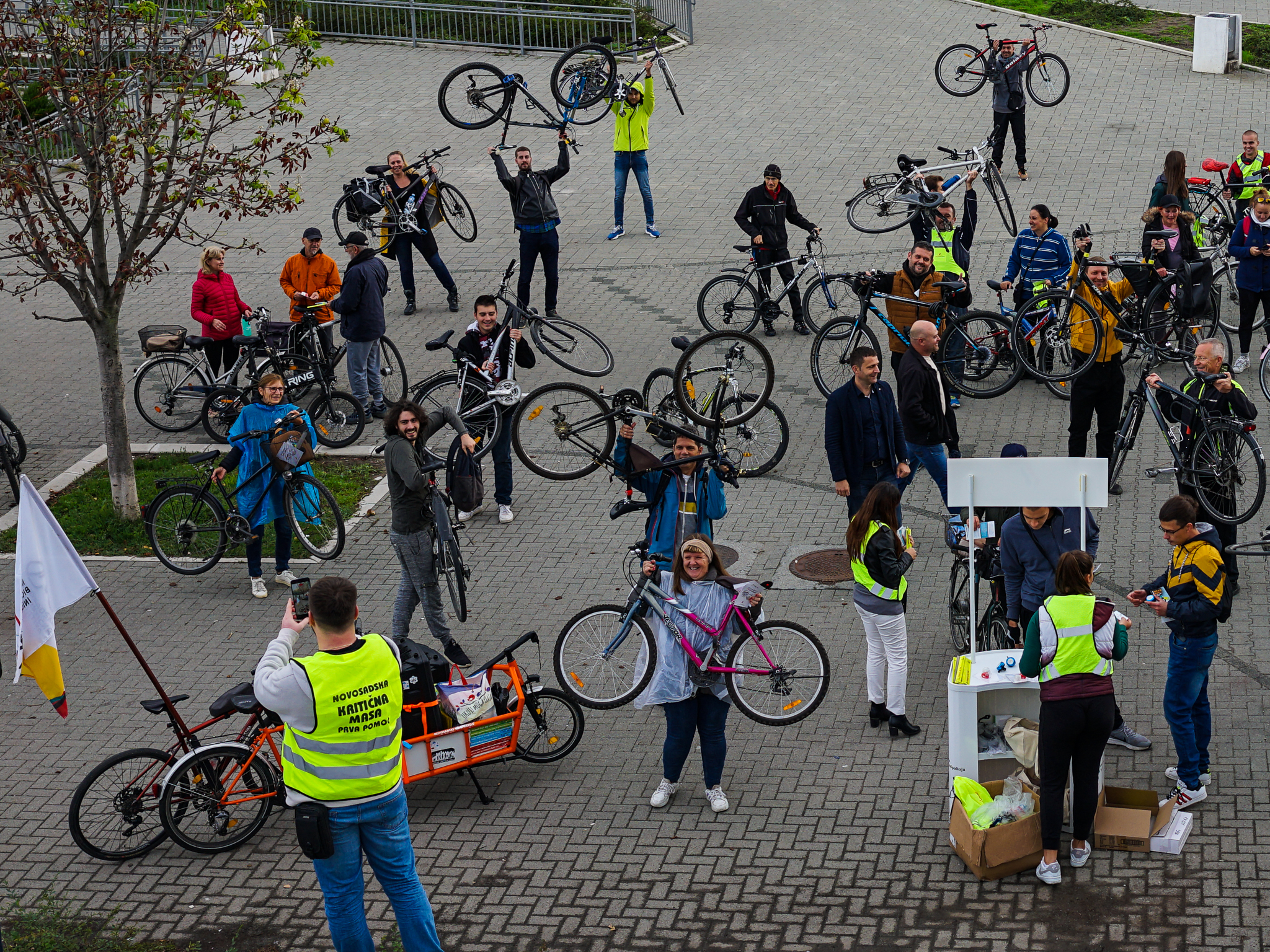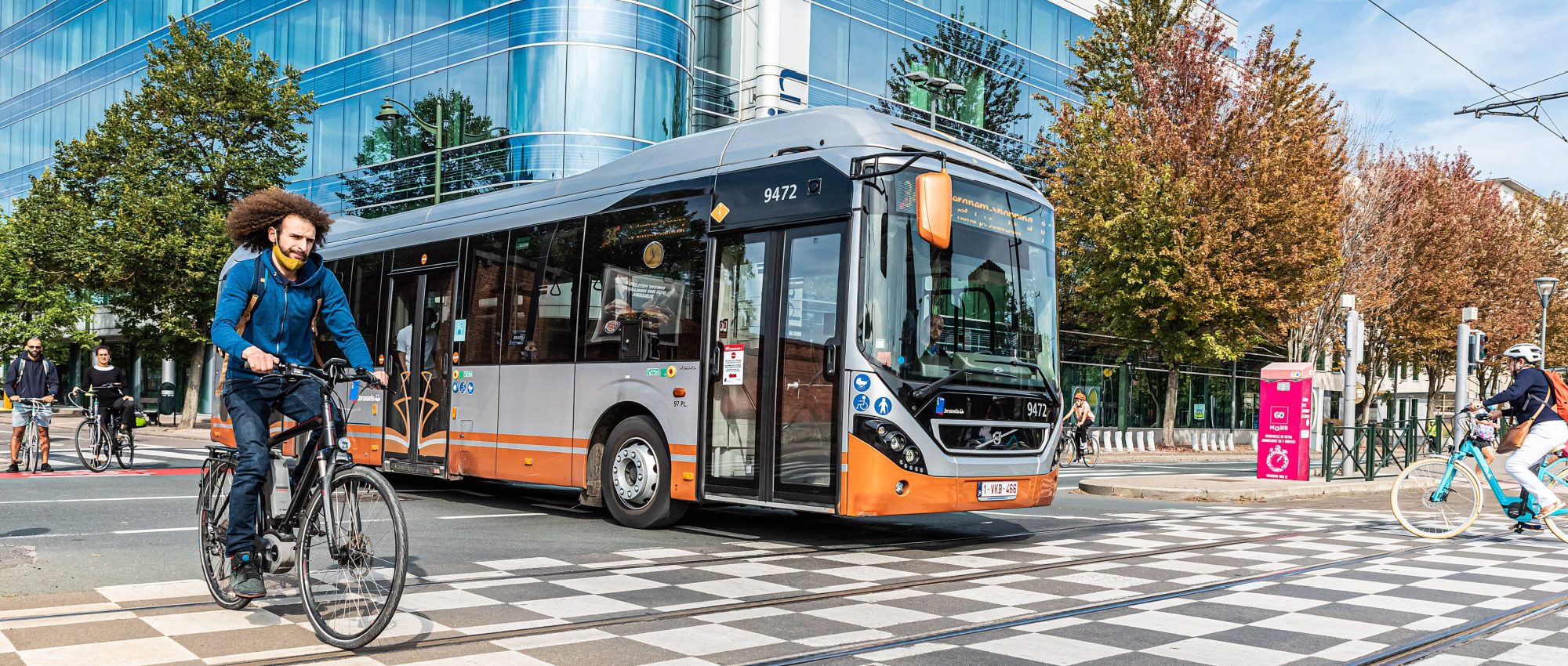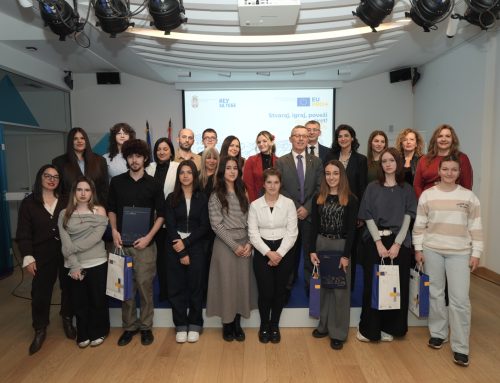Svetlana Sekulic worked on behalf of the Ministry of Construction, Transport and Infrastructure as the EUROPEANMOBILITYWEEK National Coordinator for the Republic of Serbia, where, alongside her colleague Klara Danilovic who works for the Standing Conference of Towns and Cities, she was actively engaged in finding new ways for Serbian municipalities to adopt clean mobility focused transport solutions. We spoke to Svetlana about the Ministry’s plans for the main event week from 16 – 22 September. Don’t forget to register your town or city’s participation here!
EUROPEANMOBILITYWEEK launches soon. What plans are in store for this year’s campaign?
Svetlana: Yes, we are less than one month away from EUROPEANMOBILITYWEEK. Over the past few years, we recognised that timely preparation is the key to a successful implementation of the campaign. For this period, we organised an informative workshop. We organise this workshop once each year in the beginning of July for our local authorities that are interested in participating in the campaign. In this informative workshop, we provide them with information about the current topic of the campaign – Save Energy – as well as the support they can expect from us as National Coordinators.
This year there were about 40 participants, from 18 local authorities. During the workshop, we had the opportunity to hear from the Ministry of Mining and Energy about the preparation of an “Integrated Plan for energy and climate,” which contains a number of measures that affect the reduction of energy consumption in the transport sector. We also heard from the Ministry of Environmental Protection about relevant EU climate framework focusing on the transport sector’s contribution to total greenhouse gas emissions.
Finally, the City of Zagreb introduced us to projects that it implements in the field of sustainable urban mobility.
In terms of preparing and implementing the programme of activities during EUROPEANMOBILITYWEEK, along with the workshop, we organise some panels where participating towns and cities have the opportunity to exchange their experiences and present examples of good practice. This is all part of the successful organisation of EUROPEANMOBILITYWEEK.

What lessons were learned from last year’s campaign? Any best practices or experience that can be used moving forward?
Svetlana: Well, last year’s topic – Better Connections – was very interesting for us and our local authorities. It gave us an opportunity to implement many different and innovative activities in order to promote urban mobility. What we as National Coordinators have learnt is that better connections can lead us to better results and more knowledge.
We took advantage of the 2022 theme to organise activities with different stakeholders, including children from primary schools, students from universities, our colleagues from Serbia’s big National Rail Company, and some participants from local governments.
The organisation and activities related to better connections between the biggest cities in Serbia, Belgrade and Novi Sad, were great because we could promote that connection through sustainable forms of transport such as high-speed trains. The high-speed train between Belgrade and Novi Sad was put into use last year. It was really an excellent example of how, through connecting, we can learn from each other and have benefits from that.
Regarding best practices, a very good example for us is the cooperation between the Ministry and Standing Conference of Towns and Cities: this is because, on one side, we have the Ministry supporting our local authorities on the national level in terms of allocating incentive funds to support them to improve sustainable urban mobility in their municipalities. On the other side, we have a Standing Conference of Towns and Cities, the organisation that supports and closely works with local governments to help them reform and strengthen that process. I think that is such a good example that can bring good results and we can see that, in the last few years, we have growing interest from towns and cities to participate in the organisation of EUROPEANMOBILITYWEEK.
It is great to see how successful cooperation impacts the campaign! 2023 is all about saving energy through sustainable urban mobility. Why is it important to save energy and to help people accomplish this through transport?
Svetlana: Let’s start with the fact that energy is needed for all of us to perform daily activities like talk, eat, drink and more. In order to spend it evenly and for energy to be sustainable, we should adopt some healthy lifestyle habits. By lifestyle habits, I mean that people should start to use some alternative transport modes, such as cycling or walking, to save energy, in addition to using public transport or any other shared transport mode.
I think that we as individuals can easily take small steps in order to have much greater positive effects on our health, environment and quality life in urban areas.
I come from Belgrade, a city with around 50% public transport use compared to other modes of transport. It is very important that we continue to follow this trend. Additional energy savings can also be achieved by introducing clean public transport vehicles, which are energy efficient, as well as achieving the ambitious goal of the city of Belgrade, namely the construction of its first metro lines. This will reduce traffic congestion, reduce harmful impacts on the environment in terms of air and noise, and improve traffic safety.

What could sustainable mobility look like in Serbia in 10 years?
Svetlana: Very soon, Serbia will begin with the implementation of an important project – the Local Infrastructure and Institutional Development Project –, which will be finished in a few years. One of the aims of the project is to improve the capacity of local governments to manage sustainable infrastructure and improve access to economic and social opportunities.
In one of the components of this project, there will be Climate Smart Mobility, which should improve mobility within local governments by strengthening the system for the provision of transport infrastructure services and also by renovating and reconstructing transport infrastructure. The results will reduce greenhouse gas emissions. These components also include both the development and the adoption of 25 Sustainable Urban Mobility Plans. We currently have nine SUMPs in Serbia, of which four are in place and five are still under development.

In 2021, the Ministry launched an annual national award for urban mobility. Through the evaluation of the award applications, I have seen that my country has improved its way of planning in favour of active and sustainable mobility, public transport and other clean, intelligent solutions, and I hope to see this trend continue in the next ten years. Each year, more Serbian cities join the EUROPEANMOBILITYWEEK campaign. We plan to continue this tradition and support them in promoting sustainable mobility.
Make sure to register your town or city’s participation in EUROPEANMOBILITYWEEK here.




